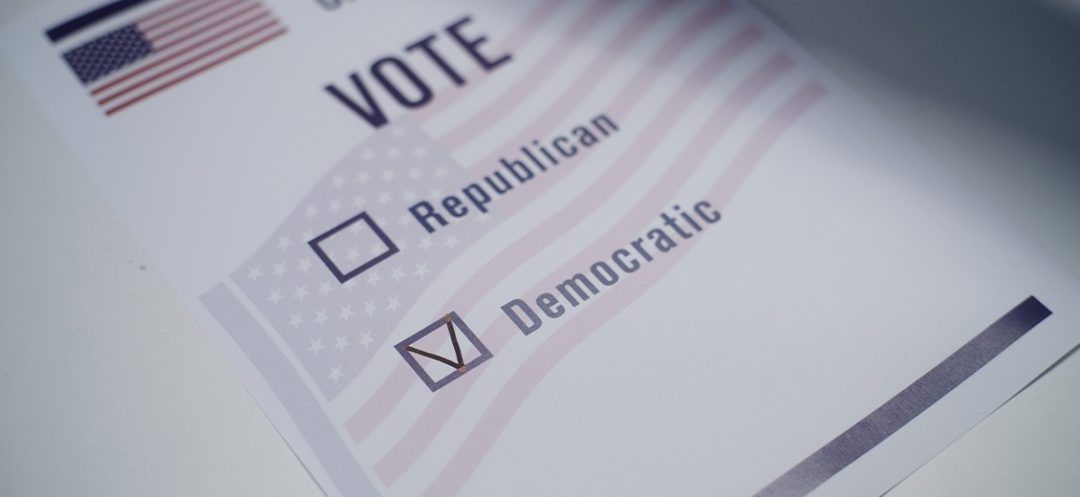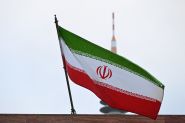- Home
- Middle East
- 2024 US Presidential Election: Zoom In on the Democratic Convention

Following President Joe Biden's withdrawal from the presidential race, the Democratic Party faces multiple challenges. On the eve of the Democratic Convention, which will be held from August 19 to 22 in Chicago, This is Beirut presents an in-depth overview of the American national conventions, which are the focal point of the electoral process.
President Joe Biden decided on July 21 to put an end to his re-election campaign, withdrawing from the presidential race. This development has shaken up the American political landscape. What challenges does the Democratic Party face on the eve of its convention scheduled for August 19-22? What role does the convention play in shaping the American electoral process?
What Is a National Convention?
In the United States political system, a convention is a large gathering organized by a political party. It is a key stage in the lengthy process leading up to the presidential election, which according to a precise schedule, runs from January to November each election year. This process occurs every four years.
A national convention has two main purposes: firstly, to pick the candidate who will represent the party in the presidential election, and secondly to highlight the party's political platform.
Given that the American political scene is dominated by the two major national parties, the Republican Party and the Democratic Party, their respective conventions are held in the summer preceding the presidential election. Hence, they are often referred to as "the summer conventions."
These conventions gather party leaders and prominent figures, along with regular activists, as well as singers and actors. As such, they are both a show and a political event, that are fully covered by the media.
How Are Candidates Nominated?
For the two major American political parties, the official race for the nomination runs from January through the summer and involves a complex, multi-stage process.
Simply put, the first phase includes two types of voting: caucuses (private meetings) and primary elections, held in each of the fifty US states and territories. Voters choose party delegates, who are committed to support the candidate who won in their state and to vote for them at the summer convention.
The second phase takes place during the national convention: the party platform is voted on, and then delegates cast their votes for the candidates chosen by voters in their state. The candidate who secures an absolute majority is officially nominated for the presidency and can also announce his vice-presidential running mate.
The "duo" presidential and vice presidential candidates, elected at the end of the convention, forms each party's winning "ticket."
The Republican convention was held from July 15 to 18 in Milwaukee, Wisconsin. It confirmed the presidential ticket of Donald Trump and J.D. Vance (Senator from Ohio).
[gallery size="full" ids="274513,274514,274515"]
Meanwhile, the Democratic convention, scheduled for August 19 to 22 in Chicago, Illinois, is facing numerous uncertainties following Joe Biden's announcement on July 21 that he is withdrawing from the presidential race.
Although Biden has officially endorsed his running mate, Kamala Harris, several scenarios remain possible. According to former President Barack Obama, the Democratic Party will be "navigating unknown territory in the upcoming days."
The 2024 Democratic Convention: A Delicate Situation
With President Biden having decided to end his re-election campaign, the Democratic Party now has three options for selecting a replacement candidate.
The first option is to hold an early online vote at the beginning of August to choose a new nominee.
The second option is for the party to rally around a new candidate before the convention.
If these options do not result in a nomination, the third option would lead to an open convention, a scenario the party has not experienced since 1968.
A convention is deemed open when no candidate secures a clear majority of delegates. It then becomes a mini-primary, where candidates must struggle to convince delegates to vote for them, often resulting in significant uncertainty and chaos.
In fact, there are approximately 4,000 Democratic delegates, including local party workers, union members, elected officials, and fundraisers. The Democratic Party classifies delegates into two types: pledged delegates and super delegates.
Pledged delegates are committed to supporting the candidate selected by voters in their state during the primaries and caucuses.
Super delegates are party leaders, including former presidents and vice presidents, Democratic governors, members of Congress, and party officials. They are not bound to any candidate and are not permitted to vote in the first ballot at the convention.
To win the Democratic nomination, a candidate must secure 1,968 delegates, which is a majority of the pledged delegates, in the first round of voting.
Clearly, the process is quite complex.
After the primaries, Joe Biden was heading to the convention with nearly 3,900 pledged delegates. Today, these delegates can vote for the candidate of their choice and are not obligated to support Kamala Harris. Before the convention, other candidates may enter the nomination race.
A Historical Issue
In this context, the situation closely mirrors that of 1968, when Democratic President Lyndon Johnson announced on March 31 that he would not seek re-election that fall. Joe Biden would thus become the second US president not to run for re-election, but the first to withdraw from the race at such a late stage.
On June 6 of that same year, Senator Robert Kennedy, a leading candidate for the Democratic nomination, was assassinated in Los Angeles. On July 13, 2024, Donald Trump survived an assassination attempt.
The Democratic convention held on August 26, 1968, in Chicago took place amid of the Vietnam War. The August 2024 convention, also in Chicago, is overshadowed by the war in Gaza.
Currently, Minyon Moore, chair of the Democratic National Convention, tried to reassure the public. In a statement issued on July 21, shortly after Joe Biden's withdrawal, she emphasized that " this year happens to be the most crucial time for us to come together as a party and reaffirm our commitment to the work ahead."
For her part, Kamala Harris has committed to "doing everything in my power to unite the Democratic Party and to defeat Donald Trump," while praising the President's "selfless and patriotic act."
Read more



Comments